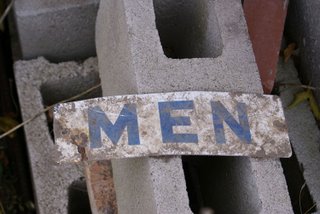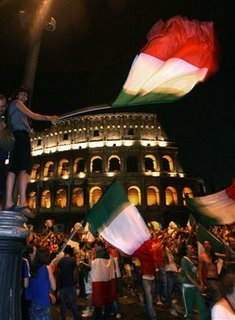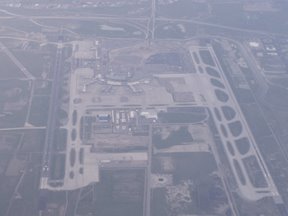 Vancouver skyline from Stanley Park
Vancouver skyline from Stanley Park
Last week, while I was vacationing in Vancouver with Rob and the Shawns, I was called a "city geek" when I pointed out to them (after having consumed three martinis, no less) that we drove past the
Vancouver Law Courts, a building that I recognized but had never seen before. Indeed I am a city geek, and I have been all my life. it surprises me somewhat that in all my blogging so far, I haven't spoken much about cities, and how I see them. The three days I spent in Vancouver brought my love of all things urban into a new focus and rejuvenated my professional and intellectual interests in urban planning. It had been well over a decade since the last time I was there.
Downtown Vancouver - very early in the morning
My return to Vancouver was a homecoming of sorts. As a child, I recalled a number of road trips my family went on - to San Francisco, Portland, and Seattle - and a trip my grandmother and I took to Vancouver en route to Alaska. I credit seeing these cities for the first time as the seminal moments of what has turned out to be my vocation. Going back to these cities over the years - and especially to Vancouver - reminded me of what I saw as a child, and afforded me the opportunity to elicit more intelligently what I found so attractive about these cities.

A new skyscraper near English Bay
San Francisco, Portland, Seattle, and Vancouver have similar characters (and to a lesser degree they share a common character with Boise and Spokane). Each city developed at similar times under similar economic circumstances; each city shares cultural influences; each city has similar topographies. Each of these cities is also changing with the global economy - they are becoming part of a much broader and more influential community of Pacific Rim conurbations - including Sydney, Hong Kong, Shanghai, Seoul, Taipei, Tokyo, Honolulu, Anchorage, and Los Angeles. In North America, the four cities of the Pacific Northwest are the cities to watch in the coming years and decades.

Vancouver is a city on the rise. The ebullience is infectious, and may be national. I took this photo at the Chapters Bookstore (similar to a Barnes and Noble) in Downtown Vancouver. Maybe the world does need more Canada.
What makes the cities of the Pacific Northwest so appealing to me is a combination of factors including dense, thriving, urban cores, access to cultural amenities, quality urban design, interesting skylines and arresting views. As I reflected on this, I realized it was the aesthetic of these cities that has captured me. It's the beautiful bridges, the skyscrapers, the captivating marriage of mountains and water, the forgiving climate that allows for verdant parks and evergreen hills.

Lion's Gate Bridge as seen from Stanley Park
As I woke up on my first morning in Vancouver to watch the sunrise, I looked out over English Bay where I saw float planes come and go, traffic zipping across the Lion's Gate Bridge, a huge container ship approach the port, glittering condominium skyscrapers, and above it all, a huge mountain range topped by lit ski runs, I realized that Vancouver captures the aesthetic in a unique and remarkable way. It is probably the most beautiful major city in North America. I stepped out of my hotel room to walk the downtown with the morning commuters, I realized how clean and seemingly well-organized the city was. The downtown was full of thriving businesses and ample commercial retail. Unlike so many cities that claim otherwise, central Vancouver really is a place to live, work, and play. All this adds to a vibe that is unmistakable and - to me - enchanting. It's little wonder then that I fell completely in love with Vancouver.
 Vancouver is an amazing city to observe - with water and mountains, industry, commerce, and housing, planes, trains, cars, and ships - all in one vista
Vancouver is an amazing city to observe - with water and mountains, industry, commerce, and housing, planes, trains, cars, and ships - all in one vista
Architecturally, the city is quite interesting - and quite distrinct from American cities. The influence of modern Asian design is apparent in the city's newer skyscrapers (owing perhaps to significant investment from China - Vancouver has a huge community of ex-pats from British Hong Kong), and the tall narrow buildings give the downtown a look not unlike that of Honolulu or parts of Tokyo. Yet there are the familiar trappings of western or indeed American urban design: streets that meet at right angles, set-backs and plazas in front of buildings, and monumental public and government spaces, including a magnificent library which was the inspiration for Salt Lake’s public library.




The Dr. Sun Yat-sen Classical Chinese Garden hosted a winter solstice celebration while we were in Vancouver. Everyone gathered with lanterns on sticks and strolled the gardens. There were lanterns hung in the trees and floating on the ponds. A jazz band was playing Christmas tunes in the pagoda.
Vancouver has strenuously avoided the encroachment of traditional suburban-style commercial retail. I saw little evidence of it in the suburbs and virtually none of it in town, other than in the context of the multi-story retail centers that you'd find in any major city. A notable exception was a Costco, which I was surprised to find just east of downtown. It was built underneath a highway viaduct. The city also lacks the limited access highway network that frames (or strangles) so many American cities (especially San Francisco and Seattle). And Vancouver looks healthier for these reasons: the city is more tightly contained and neighborhoods (even the trashy ones) appear to be thriving and bustling.
The traffic in Vancouver is quite bad, but I’ve yet to see a major city with good traffic. I don’t think you can design a city that is perfect for both people and cars. Where they come in conflict, a wise planner will err on the side of the people and encourage denser living, shorter trips, more compatible land uses, enhanced walkability, and better access to public transit. This appears to be the case in Vancouver.
 Granville Island is an urban planning success story. A warehouse district turned into a public market/retail destination. The wine merchant at Granville was second to none. There's also a store called "Crash" - effective solutions for small spaces.
Granville Island is an urban planning success story. A warehouse district turned into a public market/retail destination. The wine merchant at Granville was second to none. There's also a store called "Crash" - effective solutions for small spaces.

I was not the only one compelled to photograph the produce at the public markets.

Flowers, persimmons, pears, and lychees.

Much of the produce was beautifully displayed.


The island itself is a visually-intriguing space. A road bridge soars overhead, and the architecture is reminiscent of the island's heritage as a harborside warehouse district.
With a regional population of over 2 million people (Vancouver proper has a population of 600,000 people, it’s quite surprising that the city appears, at least from this untrained tourist’s eyes, to be so healthy, happy and comfortable. It is ranked as one of the world’s most livable cities, and housing prices and a very tight job market attest to the city’s desirability and strong economic profile. They must be doing something right.
 The price of dining well in a desirable city. Four of us shared a $10 chocolate cake.
The price of dining well in a desirable city. Four of us shared a $10 chocolate cake.
 A good city needs good coffee. I sipped on this artfully done cappuccino and read the newspaper as the city hummed around me. Despite this good coffee, there was a line snaking out the Starbucks across the street.
A good city needs good coffee. I sipped on this artfully done cappuccino and read the newspaper as the city hummed around me. Despite this good coffee, there was a line snaking out the Starbucks across the street.
















































